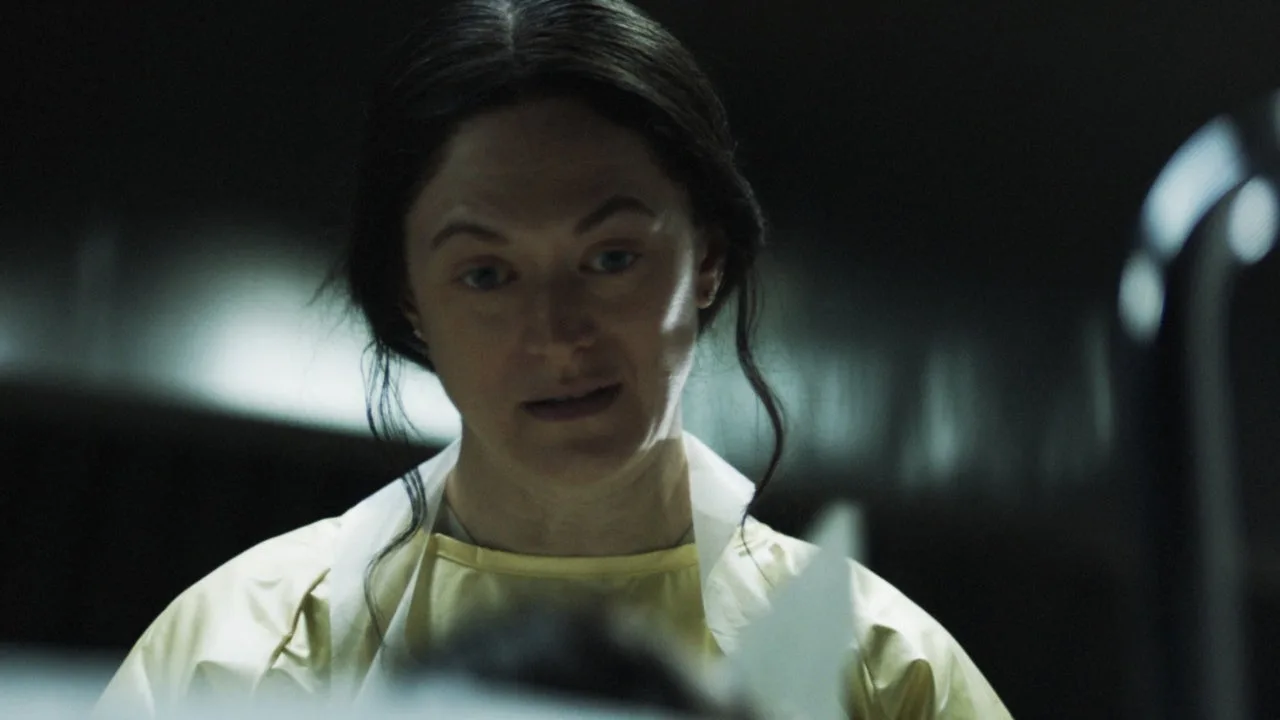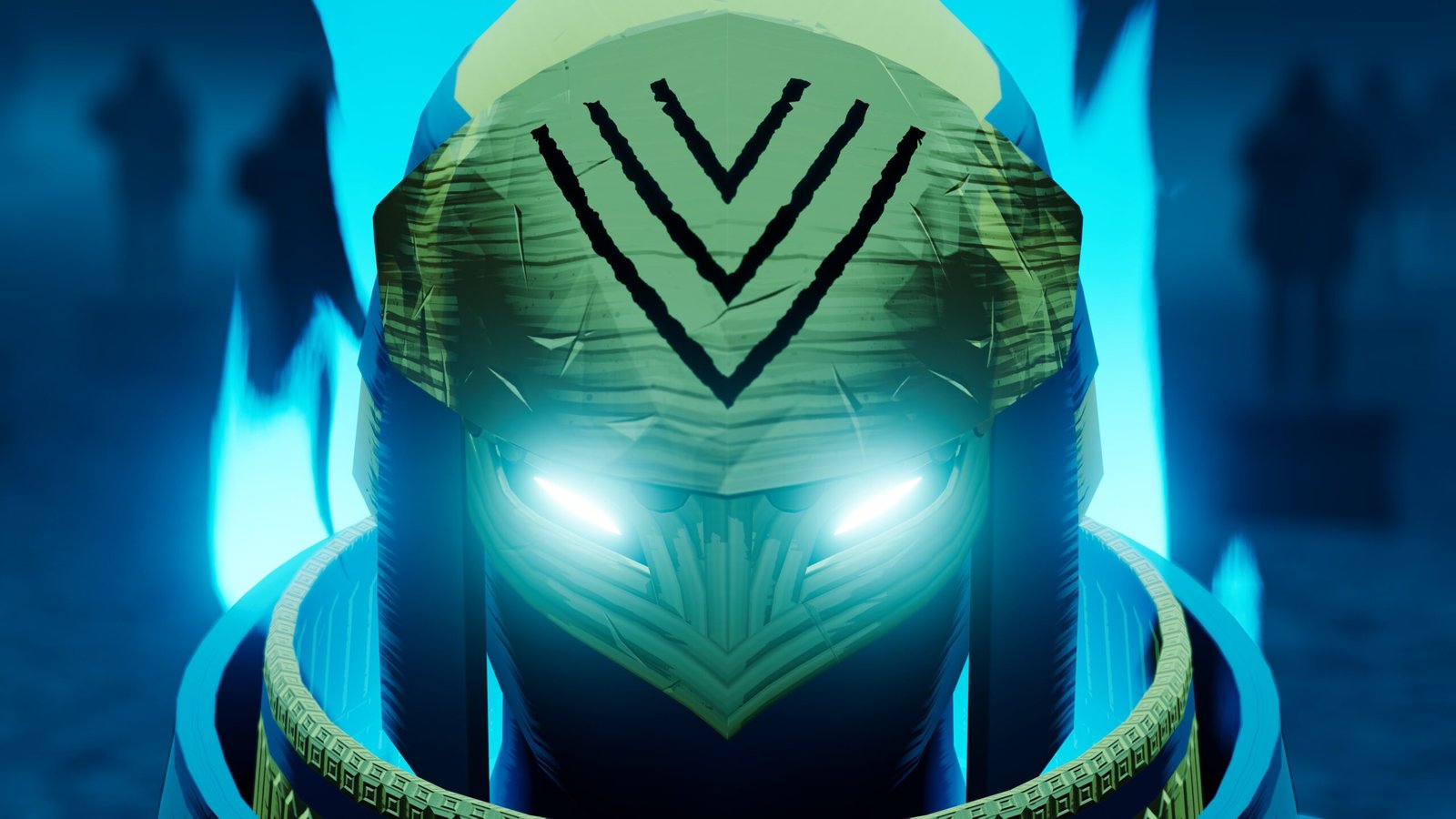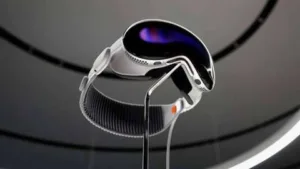Birth/Rebirth Review
Estimated reading time: 4 minutes
There are many ways to be a woman. Some women have periods; others do not. Some can get pregnant; others cannot. Some are nurturing; others are disinterested in motherhood. What if the binary between life and death was similarly mutable? That’s the essence of the Frankenstein myth as interpreted by director Laura Moss in Birth/Rebirth.
The film revolves around two very different women: Rose (Marin Ireland) is a rigid, emotionless morgue technician at a New York City hospital – one might even say she’s sociopathic, given her bewilderment at the feelings of others. Rose has been fascinated with death, and particularly the reanimation of dead tissue, since she was a child. After a successful experiment in which she revives a pig, Rose is ready to move on to a human subject. All she needs is a fresh corpse whose genetic profile matches her own.
Enter Celie (Judy Reyes), a warm, compassionate obstetrics nurse who works upstairs. A single mom who struggles to balance her childcare responsibilities with long shifts at the hospital, Celie dearly loves both her work and her daughter Lila (A.J. Lister). But she’s tired. Really tired. A “falling asleep on the bus” kind of tired. So when Lila complains that she’s not feeling well one morning while Celie is getting ready for work, Celie foists her off onto a neighbor and rushes off to the hospital. She’ll be fine – right?
Lila is not fine. This difficult truth creates a pathway that will lead Rose and Celie to each other midway through Birth/Rebirth, in a dramatic reveal that makes more emotional sense than it does the logical kind. There’s no way that this will work out well for anyone; from its inception, this is a tragedy in the making, fueled by Rose’s hubris and Celie’s denial. But Celie is living a nightmare. And Rose offers her a way out of it – a grotesque, unnatural way out, but a way out nonetheless. Becoming Igor to Rose’s Dr. Frankenstein allows Celie to postpone her grief, and the fact that she takes this Faustian bargain makes her heartbreakingly human.
The most challenging thing about Birth/Rebirth is its clinical interest in humanity. Moss is a trained EMT, and their medical experience shows in the film’s detached observations of graphic gore. The movie opens with an upsetting scene of Celie attending a woman who’s dying in childbirth, filmed from the dying woman’s perspective. Then the camera pulls back, and we follow the dead woman’s body as it’s wheeled down to the morgue, laid on a metal autopsy table, sliced open, and has its organs removed and weighed one by one.
The images are horrific, but honest: Despite the efforts of nurses like Celie, sometimes people die while giving birth. And this is what morgue technicians like Rose do all day — observe the human body in its gray, bloodless final form. Both are the type of cold fact that non-medical professionals usually prefer to look away from. This movie does not offer viewers that option.
Birth/Rebirth’s dispassionate lens extends to Rose’s experiments on herself. This mad scientist can make her own life-giving serum in the form of fetal stem cells, and the way she accomplishes this is one of several elements in the film that push far beyond the average viewer’s comfort levels. But Moss and their co-writer, Brendan O’Brien, aren’t trading in empty shock value. The radical questions about ethics and autonomy raised here can sustain hours of conversation.
Moss shoots the long hallways of the hospital and the cramped rooms of Rose’s apartment with a claustrophobic sense of panic that mirrors the metaphorical walls that are closing in on Rose and Celie as continuing their experiment becomes more and more complicated. As their desperation mounts, their actions become increasingly amoral, creating a precarious, anything-can-happen atmosphere that’s enhanced by Ariel Marx’s nerve-shredding score.
But Moss still refuses to judge them. The film immerses us in Rose and Celie’s perspectives, and asks us to, if not endorse their actions, at least try to understand where they’re coming from. It’s a disturbing exercise, and a provocative one — which is exactly what makes it so worthwhile.









